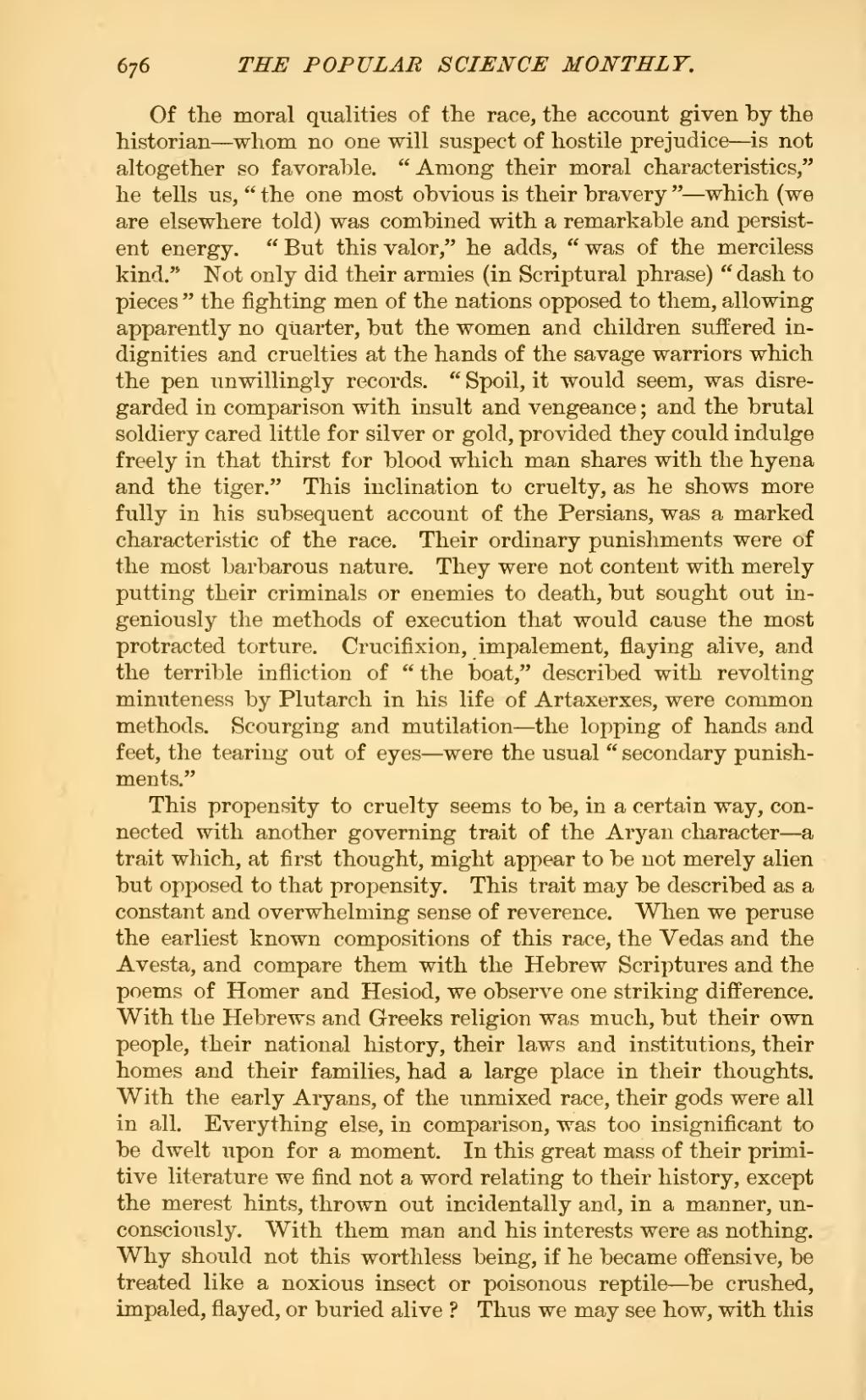Of the moral qualities of the race, the account given by the historian—whom no one will suspect of hostile prejudice—is not altogether so favorable. "Among their moral characteristics" he tells us, "the one most obvious is their bravery"—which (we are elsewhere told) was combined with a remarkable and persistent energy. "But this valor" he adds, "was of the merciless kind." Not only did their armies (in Scriptural phrase) "dash to pieces" the fighting men of the nations opposed to them, allowing apparently no quarter, but the women and children suffered indignities and cruelties at the hands of the savage warriors which the pen unwillingly records." Spoil, it would seem, was disregarded in comparison with insult and vengeance; and the brutal soldiery cared little for silver or gold, provided they could indulge freely in that thirst for blood which man shares with the hyena and the tiger." This inclination to cruelty, as he shows more fully in his subsequent account of the Persians, was a marked characteristic of the race. Their ordinary punishments were of the most barbarous nature. They were not content with merely putting their criminals or enemies to death, but sought out ingeniously the methods of execution that would cause the most protracted torture. Crucifixion, impalement, flaying alive, and the terrible infliction of "the boat," described with revolting minuteness by Plutarch in his life of Artaxerxes, were common methods. Scourging and mutilation—the lopping of hands and feet, the tearing out of eyes—were the usual "secondary punishments."
This propensity to cruelty seems to be, in a certain way, connected with another governing trait of the Aryan character—a trait which, at first thought, might appear to be not merely alien but opposed to that propensity. This trait may be described as a constant and overwhelming sense of reverence. When we peruse the earliest known compositions of this race, the Vedas and the Avesta, and compare them with the Hebrew Scriptures and the poems of Homer and Hesiod, we observe one striking difference. With the Hebrews and Greeks religion was much, but their own people, their national history, their laws and institutions, their homes and their families, had a large place in their thoughts. With the early Aryans, of the unmixed race, their gods were all in all. Everything else, in comparison, was too insignificant to be dwelt upon for a moment. In this great mass of their primitive literature we find not a word relating to their history, except the merest hints, thrown out incidentally and, in a manner, unconsciously. With them man. and his interests were as nothing. Why should not this worthless being, if he became offensive, be treated like a noxious insect or poisonous reptile—be crushed, impaled, flayed, or buried alive? Thus we may see how, with this

